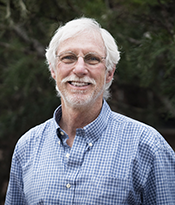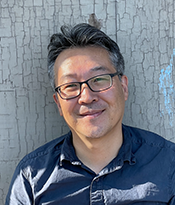
Benjamin Grinstein
Distinguished Professor of Physics Benjamin Grinstein received the Fundamental Physics Innovation Award from the American Physical Society, given to stimulate innovative ideas in which emerging technologies can be used to address pressing problems in fundamental physics. The award is funded by the Gordon and Betty Moore Foundation.
Grinstein was recognized for his proposal that using different experimental techniques yielded different measurements in the rate at which a neutron decays because the neutron occasionally decays without emitting a proton. Knowing the neutron lifetime precisely is important in understanding the formation of elements in the history of the universe. Grinstein’s research not only has implications into the nature of forces between elementary particles, but may also help uncover the origin of the dark matter that permeates the universe.
Thanks to a Visitor Award that came with his recognition, Grinstein is furthering his research at the Instituto de Astrofísica de Canarias in the Canary Islands, where he is studying the consequences of his proposal that may manifest themselves in the decay of hyperons—elementary particles closely related to neutrons and protons that play a role in understanding the history of the universe.

Terry Hwa
Terry Hwa, Distinguished Professor and Presidential Chair in the departments of Physics and Biological Sciences, will receive the 2022 Max Delbruck Prize in Biological Physics from the American Physical Society. The prize recognizes and encourages outstanding achievement in biological physics research.
Hwa will receive the award for “developing quantitative studies that reveal fundamental constraints on bacterial physiology, and for formulating simple phenomenological theories that quantitatively predict bacterial responses to genetic and environmental changes.”
In 2016, Hwa helped launch UC San Diego’s “qBio” Ph.D. specialization program, which seeks to predict and understand living systems in quantitative terms, including their behaviors, interactions, and heredity. qBio combines the power of abstract, quantitative reasoning with advanced instrumentation from physics and engineering to discover fundamental organizing principles of living systems.

Suckjoon Jun
Suckjoon Jun, associate professor in the Department of Physics and Section of Molecular Biology, will receive the Michael and Kate Bárány Award for Young Investigators from the American Biophysical Society. The award recognizes outstanding contributions to biophysics by someone who has not yet achieved the rank of full professor. Jun is being honored for his “groundbreaking research on the biophysical mechanisms of bacterial cell size control.”
In 2012, Jun’s lab, then at Harvard, discovered a quantitative principle they coined “the adder.” Jun moved his lab to UC San Diego that same year, carried out extensive single-cell experiments to firmly establish the principle and reported the results in 2014. In 2019, his lab reported the mechanistic underpinning of the adder principle.
These efforts have overturned a 50-year-old paradigm on how bacteria’s growth, cell cycle and cell size are coordinated. This finding was of fundamental importance and the concept of the adder now dominates the field. Several non-bacterial organisms, including mammalian, have been shown to follow the adder principle, and the impact of his lab’s work will likely extend beyond the world of bacteria.
“We’re incredibly proud of these three faculty and the tremendous work they do,” stated UC San Diego Dean of Physical Sciences Steven E. Boggs. “We congratulate Terry, Ben and Suckjoon on their well-deserved awards. These recognitions underscore the importance of their work and highlights the breadth and excellence of fundamental physics research being pursued at UC San Diego.”
The American Physical Society also recently honored Mayer Hall as an historic site in recognition of research conducted there by physicists Walter Kohn and Lu Jeu Sham on density functional theory. First occupied in 1963, Mayer Hall was later renamed to honor former UC San Diego professors Maria and Joseph Mayer. Maria Mayer was a physicist whose legacy includes developing the nuclear shell model of atomic nuclei, for which she received the Nobel Prize in Physics. Her husband, Joseph Mayer, was a renowned physical chemist.


